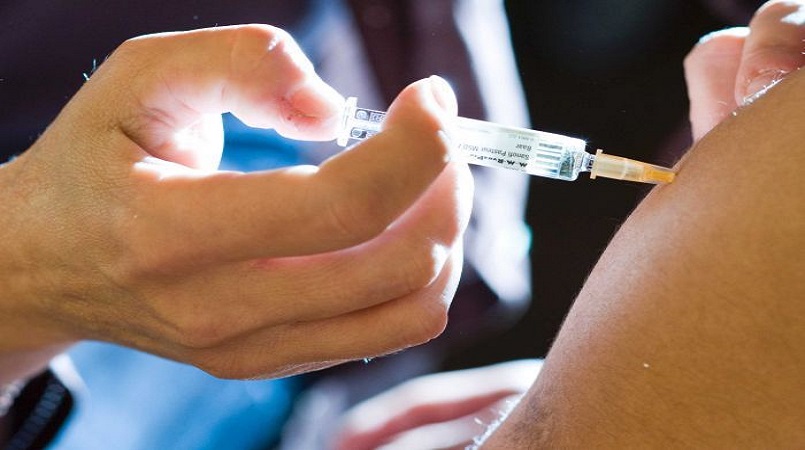
The leader of Australia’s emergency medical response team in Samoa has labelled the measles outbreak as an “extraordinary crisis” as the Pacific Island nation grapples with 249 new recorded cases in the last 24 hours alone.
Fiji and Tonga have also been hit by the outbreak, believed to have originated in New Zealand, but Samoa has been worst affected because of vaccination rates as low at 25-48 per cent, according to the World Health Organisation.
Emergency doctor Mark Little is the Mission leader for the Australian Medical Assistance Teams (AUSMAT) -- a disaster response team deployed by the Department of Foreign Affairs. Dr Little has said the emergency is like nothing he has seen before.
“I had heard how bad it was but it is much worse than I had expected,” he said.
“I’ve never seen a health system that has been so overwhelmed. This has been going on for weeks, since early October, and will continue for weeks to come.
“I’ve been involved in seven AUSMAT deployments in countries such as Pakistan, Bangladesh and the Philippines. I’ve never seen anything like this.”
The Department of Foreign Affairs has sent a team including doctors and nurses, to provide support to Samoan health system that has coped with 2,686 cases of the disease.
At least 33 people have died since the outbreak began in October. All but four of the dead were children aged four years and under.
Dr Little and his team have treated children who have died since their deployment mid-November.
“This is heartbreaking, all our team has been really moved by the care given by the Samoan people and by seeing young children die,” he said.
“There have been lots and lots of tears, from both Samoan and Australian health professionals caring for these children.”
More than 33,000 people have been vaccinated since the government launched a mass vaccination campaign on 20 November to address historically low levels of immunisation among its 200,000 residents.
Schools and kindergartens remain closed and unvaccinated pregnant women have been banned from working.
There are 156 measles patients in the capital Apia’s main hospital, of which 90 percent are children under four years of age.
Dr Little said there are 21 children who are critically ill in intensive care, most with severe cases of phenomena which is a fatal complication of measles.
Despite the Samoan health system being completely overwhelmed by the outbreak, Dr Little said the Samoan medical team are “incredible.”
“I cannot speak highly enough of the Samoan team...I have never seen such good team work,” he said.
“Samoan doctors and nurses are going above and beyond. Absolutely everyone is focused on solving problems in this crisis.”
Dr Little has said that he has been humbled to work with the Samoan team.
“Sadly, when we have had a death, Samoan and Australian staff are shedding tears together and looking after each other,” he said.
